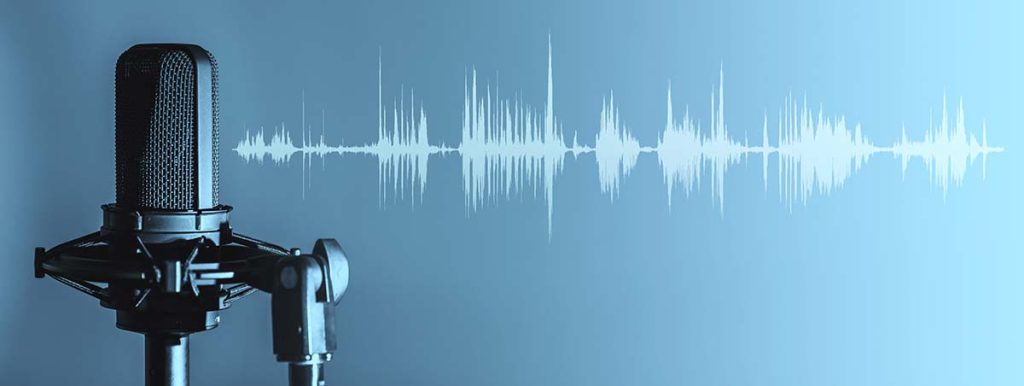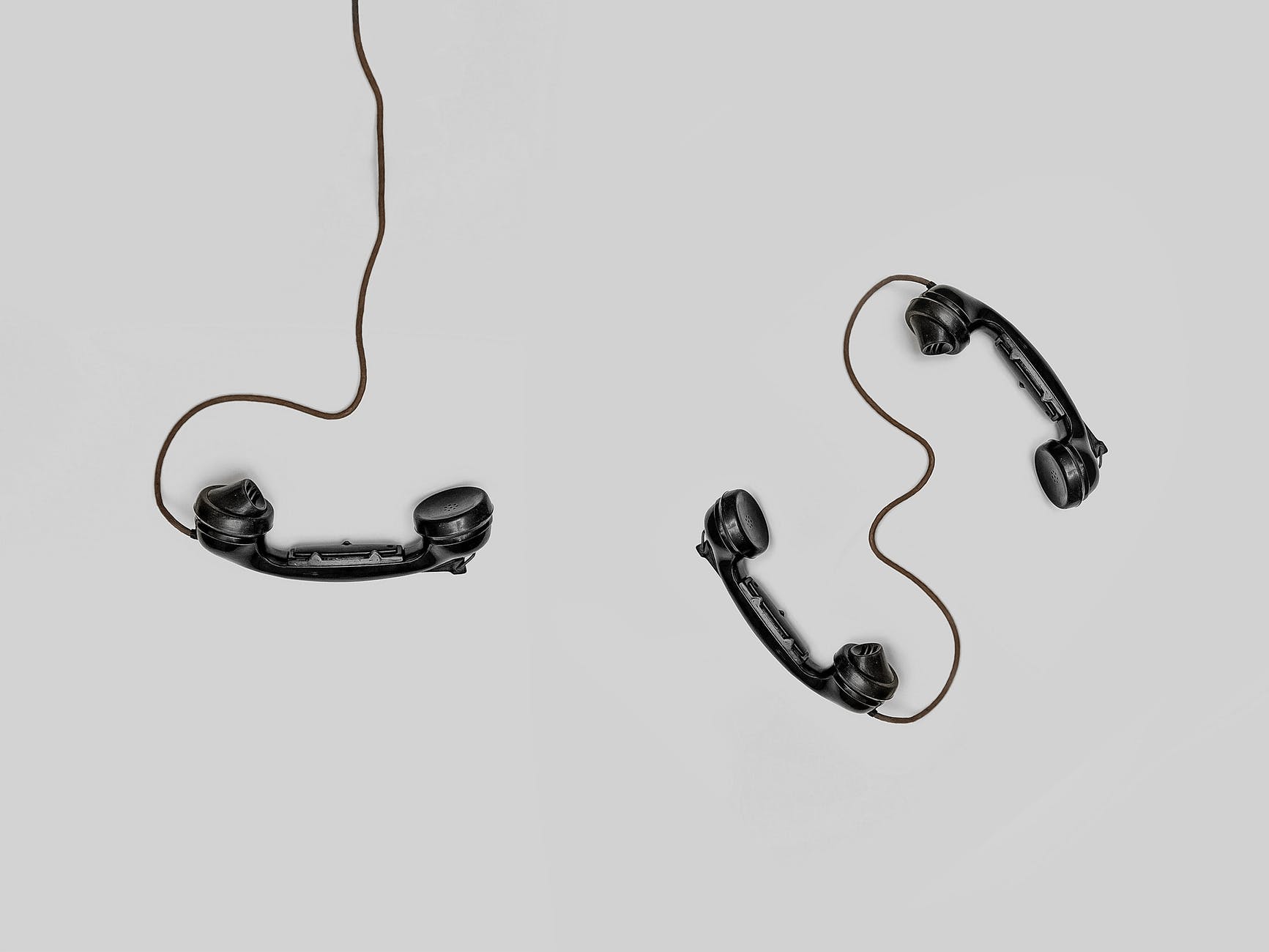

Georgia recording law stipulates that it is a one-party consent state. In Georgia it is a criminal offense to use any device to record or disclose communications, whether they are wire, oral or electronic, without the consent of at least one person taking part in the communication.
This means that in Georgia, you are legally allowed to record a conversation if you are a contributor, or with prior consent from one of the involved parties. Ga. Code Ann. § 16-11-66(a).

However, there is one caveat which states that minors can have their electronic and phone communications legally intercepted by their parents without any prior consent. Our recommended Digital Voice Recorder.

You may not record conversations that you are not a part of without the consent of at least one party. Trespassing on private property with the intention to eavesdrop or covertly spy on an individual is also forbidden under state law. Ga. Code Ann. § 16-11-62(3). If you are a third party and require consent from the parties taking part in the conversation, the Federal Communications Commission (FCC) states that you may gain consent to make a recording by:

It is against the law to use any device to photograph or record a person’s activities which occur in a private place and out of public view, without the consent of that person or any other person being recorded. For example, if you have a security camera, you are not allowed to record or surveil your neighbor while he or she is in the backyard because that is a private place. Ga. Code Ann. § 16‐11‐62(2)
However, it is legal for occupants and owners of properties to use any device to record, observe or photograph the activities of persons who are on the property or in areas where there is no reasonable expectation of privacy for the following purposes:
Ga. Code Ann. § 16‐11‐62(2)(B)
If you are recording someone’s likeness for business purposes, you should ensure that you gain proper consent by having them fill out a photo or video consent form.
In Georgia, it is against the law to make a recording of a conversation that you are not taking a part in. Some examples of this would be:
Ga. Code Ann. § 16-11-69: Persons who violate Georgia’s recording laws may be found guilty of a felony and upon conviction may be punished by imprisonment of 1-5 years or a fine not exceeding $10,000, or both.
For info on the legality of the Trump recordings click here.
Is Georgia a One-Party Consent State?Yes! Georgia is a one-party consent state.
Can I Record a Police Officer in Georgia?Yes! You can record police officers in the line of duty in all states as long as you are not trespassing or breaking any laws yourself.
Can I Secretly Record a Conversation From a Two-Party Consent State?If the recording is being made in a one-party consent state, then it is legal to record a conversation that you are taking part in. However, it is still best practice to inform all participants that they are being recorded.

You can record in public if you are taking part in the conversation taking place on the recording. You may also record in areas where there is no reasonable expectation of privacy. This means that it is legal to film in parks or public squares, however, you may run into issues if you are recording on private property such as malls.
Can I Record a Telephone Conversation in Georgia?You may only record a telephone call if you are a party to the conversation. If you are not taking part in the conversation, you need to gain the consent of at least one party. This can be done by playing a recording stating that the call will be recorded prior to the conversation beginning or by gaining verbal or written consent from the other parties.
Is Georgia a Two-Party Consent State?No, Georgia is a one-party consent state.
| State | Simple Terms | Law |
|---|---|---|
| Alabama Recording Laws | According to Ala. Code § 13A-11-30 you are not allowed to video record people in “A place where one may reasonably expect to be safe from casual or hostile intrusion or surveillance, but such term does not include a place to which the public or a substantial group of the public has access”. | Ala. Code § 13A-11-30 |
| Alaska Recording Laws | Alaska's highest court has specifically held that the eavesdropping statute is only in place to address 3rd party interceptions. They do have specific protections in place for nude photo and film. | Alaska Stat. Ann. § 42.20.330, § 42.20.310,§ 11.61.123 |
| Arizona Recording Laws | Consent is required to record conversations in which there is a legal expectation of privacy, though consent is not required in places where there is no reasonable expectation of privacy such as a street or park. One major caveat is that the owner of the telephone line may record phone calls without taking part of them (such as a business owner). | Ariz. Rev. Stat. Ann. § 13-3001, § 13-3012 |
| Arkansas Recording Laws | Ark. Code Ann. § 5-60-120 Consent is required to record conversations in which there is a legal expectation of privacy, though consent is not required in places where there is no reasonable expectation of privacy such as a street or park. | Ark. Code Ann. § 5-60-120 |
| Colorado | In Colorado it is a criminal offense to use any device to record communications whether it’s wire, oral or electronic without the consent of at least one person taking part in the communication. Albeit there is a caveat in that recording is allowed to take place if there is no reasonable expectation of privacy such as a public place such as a street or park. | Colo. Rev. Stat. § 18-9-304 |
| District of Columbia Recording Laws | In D.C. it is a criminal offense to use any device to record communications whether it’s wire, oral or electronic without the consent of at least one person taking part in the communication. Albeit there is a caveat in that recording is allowed to take place if there is no reasonable expectation of privacy such as a public place such as a street or park. | D.C. Code § 23-542 |
| Georgia Recording Laws | In Georgia it is a criminal offense to use any device to record or disclose communications, whether they are wire, oral or electronic, without the consent of at least one person taking part in the communication. This means that in Georgia, you are legally allowed to record a conversation if you are a contributor, or with prior consent from one of the involved parties. Ga. Code Ann. § 16-11-66(a). Georgia does have a caveat which allows for parents to legally intercept the communications of their children. | Ga. Code Ann. § 16-11-66, Ga. Code Ann. § 16-11-62 |
| Hawaii | Hawaii recording law stipulates that it is a one-party consent state. In Hawaii, it is a criminal offense to use any device to record or disclose communications, whether they are wire, oral or electronic, without the consent of at least one person taking part in the communication. This means that in Hawaii, you are legally allowed to record a conversation if you are a contributor, or with prior consent from one of the involved parties. Haw. Rev. Stat. § 803-42. | Haw. Rev. Stat. § 803-42. |
| Idaho Recording Laws | Idaho recording law stipulates that it is a one-party consent state. In Idaho, it is a criminal offense to use any device to record communications, whether they are wire, oral or electronic, without the consent of at least one person taking part in the communication. This means that in Idaho, you are legally allowed to record a conversation if you are a contributor, or with prior consent from one of the involved parties. Idaho Code Ann. § 18-6702. | Idaho Code Ann. § 18-6702. |
| Federal | Federal law dictates that when no other law applies that it is a one party consent region. State laws will supercede this, so make sure to check your local state laws. | Electronic Communications Privacy Act of 1986 (ECPA) & 18 U.S. Code § 2511 |
| State | Simple Terms | Law |
|---|---|---|
| Indiana Recording Laws | In Indiana, it is a criminal offense to use any device to intercept communications, whether wire or electronic, without the consent of at least one person taking part in the communication. Ind. Code Ann. § 35-31.5-2-176. This applies to text messages and e-mails as well. Ind. Code Ann. § 35-31.5-2-110. | Ind. Code Ann. § 35-31.5-2-110, Ind. Code Ann. § 35-31.5-2-176. |
| Iowa Recording Laws | In Iowa, it is a criminal offense to use any device to record communications, whether they are wire, oral or electronic, without the consent of at least one person taking part in the communication, as long as the recording is made without any criminal intent. Iowa Code Ann. § 808B.2. This means that in Iowa, you are legally allowed to record a conversation if you are a contributor, or with prior consent from one of the involved parties. Iowa Code Ann. § 727.8. | Iowa Code Ann. § 808B.2, Iowa Code Ann. § 727.8. |
| Kansas Recording Laws | In Kansas, it is a criminal offense to use any device to record, listen to or amplify communications, whether they are wire, oral or electronic, without the consent of at least one person taking part in the communication. This means that in Kansas, you are legally allowed to record a conversation if you are a contributor, or with prior consent from one of the involved parties. Kan. Stat. Ann. § 21-6101(4). This state also has a hidden camera law which forbids the recording and disclosure of intercepted images. Kan. Stat. Ann. § 21-6101(6). | Kan. Stat. Ann. § 21-6101 |
| Kentucky Recording Laws | It is a criminal offense to use any device to record, obtain, share or use communications, whether they are wire, oral or electronic, without the consent of at least one person taking part in the communication. This means that in Kentucky, you are legally allowed to record a conversation if you are a contributor, or with prior consent from one of the involved parties. Ky. Rev. Stat. Ann. § 526.020. This state’s voyeurism laws also forbids the recording or disclosure of illegally obtained images. Ky. Rev. Stat. Ann. § 531.090. | Ky. Rev. Stat. Ann. § 526.020 ,Ky. Rev. Stat. Ann. § 526.010. , Ky. Rev. Stat. Ann. § 531.090 |
| Louisiana Recording Laws | It is a criminal offense to use any device to record, obtain, use or share communications, whether they are wire, oral or electronic, without the consent of at least one person taking part in the communication. This means that in Louisiana, you are legally allowed to record a conversation if you are a contributor, or with prior consent from one of the involved parties. La. Rev. Stat. Ann. § 15:1303. This state also forbids the recording or sharing obtained illegally under its video voyeurism laws. La. Rev. Stat. Ann. § 14:283. | La. Rev. Stat. Ann. § 15:1303. - Electric Surveillance Act, La. Rev. Stat. Ann. § 14:283. |
| Maine Recording Laws | It is a criminal offense to use any device to record, obtain, use or share communications, whether they are wire, oral or electronic, without the consent of at least one person taking part in the communication, unless the conversation is audible by normal, unaided hearing. This means that in Maine, you are legally allowed to record a conversation if you are a contributor, or with prior consent from one of the involved parties. Me. Rev. Stat. Ann. tit. 15, § 710. |
| State | Simple Terms | Law |
|---|---|---|
| Missouri Recording Laws* | It is a criminal offense to use any device to record or share communications, whether they’re wire or oral, without the consent of at least one contributing party. This means that in Missouri you are not legally allowed to record a wire or oral conversation you are taking part in unless you have the consent of at least one party. t is a criminal offense to use any device to record or share communications, whether they’re wire or oral, without the consent of at least one contributing party. This means that in Missouri you are not legally allowed to record a wire or oral conversation you are taking part in unless you have the consent of at least one party. |
| State | Simple Terms | Law |
|---|---|---|
| Rhode Island Recording Laws | It is a criminal offense to use any device to record or share use communications, whether they are wire, oral or electronic, without the consent of at least one person taking part in the communication. This means that in Rhode Island, you are legally allowed to record a conversation if you are a contributor, or with prior consent from one of the involved parties, barring any criminal intentions. It is also lawful to share the details of a conversation that has become widely circulated or available to the public. R.I. Gen. Laws § 11-35-21 (2012). | R.I. Gen. Laws § 11-35-21 (2012), R.I. Gen. Laws § 12-5.1-1 |
| South Carolina Recording Laws | It is a criminal offense to use any device to record or share use communications, whether they are wire, oral or electronic, without the consent of at least one person taking part in the communication. This means that in South Carolina, you are legally allowed to record a conversation if you are a contributor, or with prior consent from one of the involved parties. S.C. Code Ann. § 17-30-30 (2011). | S.C. Code Ann. § 17-30-30 (2011), S.C. Code Ann. § 17-30-15 |
| South Dakota Recording Laws | It is a criminal offense to use any device to record or share use communications, whether they are wire, oral or electronic, without the consent of at least one person taking part in the communication. This means that in South Dakota, you are legally allowed to record a conversation if you are a contributor, or with prior consent from one of the involved parties, barring any criminal intentions. S.D. Codified Laws § 23A-35A-20 (2012). | S.D. Codified Laws § 23A-35A-20 (2012) & S.D. Codified Laws § 23A-35A-1 (2012) |
| Tennessee Recording Laws | It is a criminal offense to use any device to record or share use communications, whether they are wire, oral or electronic, without the consent of at least one person taking part in the communication. This means that in Tennessee, you are legally allowed to record a conversation if you are a contributor, or with prior consent from one of the involved parties, barring any criminal intentions. It is also lawful to record electronic communications that are easily available to the public. Tenn. Code Ann. § 39-13-601 (West 2012). | Tenn. Code Ann. § 39-13-601 & Tenn. Code Ann. § 39-13-604 & Tenn. Code Ann. § 40-6-303 (West 2012) |
| Texas Recording Laws | It is a criminal offense to use any device to record or share use communications, whether they are wire, oral or electronic, without the consent of at least one person taking part in the communication. This means that in Texas, you are legally allowed to record a conversation if you are a contributor, or with prior consent from one of the involved parties, barring any criminal intentions. It is also lawful to record electronic communications that are easily available to the public. Tex. Penal Code Ann. § 16.02 (Vernon 2011). | Tex. Penal Code Ann. § 16.02 (Vernon 2011) & Tex. Code Crim. Proc. Ann. art. 18.20 |
| Utah Recording Laws | It is a criminal offense to use any device to record or share use communications, whether they are wire, oral or electronic, without the consent of at least one person taking part in the communication. This means that in Utah, you are legally allowed to record a conversation if you are a contributor, or with prior consent from one of the involved parties, barring any criminal intentions. It is also lawful to record electronic communications easily available to the public. | Utah Code Ann. § 77-23a-3 & Utah Code Ann. § 77-23a-4 |
| Vermont Recording Laws | Vermont law does not contain any provisions regarding the legality of recording or sharing any kind of audio-based conversations. This means that Vermont is considered a one-party consent state. However, the state Supreme Court has determined that it is a criminal offense to covertly and electronically monitor communications occurring in an person’s home. Vermont v. Geraw, 795 A.2d 1219 (Vt. 2002). A state high court upheld that an individual should not be under the expectation of privacy in a hospital’s emergency treatment section as any number of different people are frequently coming and going. Vermont v. Rheaume, 889 A.2d 711 (Vt. 2005). It is also considered lawful to record a conversation taking place in a parking lot for the same reason. Vermont v. Brooks, 601 A.2d 963 (Vt. 1991). | Vermont v. Geraw, 795 A.2d 1219 (Vt. 2002) & Vermont v. Rheaume, 889 A.2d 711 (Vt. 2005) & Vermont v. Brooks, 601 A.2d 963 (Vt. 1991). |
| Virginia Recording Laws | In Virginia, it is a criminal offense to use any device to record or share use communications, whether they are wire, oral or electronic, without the consent of at least one person taking part in the communication. This means that in Virginia, you are legally allowed to record a conversation if you are a contributor, or with prior consent from one of the involved parties. Va. Code Ann. § 19.2-62 (West 2012). | Va. Code Ann. § 19.2-61 & Va. Code Ann. § 19.2-62 (West 2012). |
| West Virginia Recording Laws | It is a criminal offense to use any device to record or share use communications, whether they are wire, oral or electronic, without the consent of at least one person taking part in the communication. This means that in West Virginia, you are legally allowed to record a conversation if you are a contributor, or with prior consent from one of the involved parties, barring any criminal intentions. W. Va. Code § 62-1D-3 (2012). | W. Va. Code § 62-1D-3 |
| Wisconsin Recording Laws | In Wisconsin, it is a criminal offense to use any device to record or share use communications, whether they are wire, oral or electronic, without the consent of at least one person taking part in the communication. This means that in Wisconsin, you are legally allowed to record a conversation if you are a contributor, or with prior consent from one of the involved parties, barring any criminal intentions. Wis. Stat. Ann. § 968.31 (West 2011). Evidence that is obtained by recording communication is 'totally' inadmissable in civil court cases. Regardless of who took the recording, the only way a recording can be admissable in a civil case is with the consent of the person recorded. | Wis. Stat. Ann. § 968.27 (West 2011) & Wis. Stat. Ann. § 968.31 (West 2011) & Wis. Stat. Ann. § 885.365(1 |
| Wyoming Recording Laws | It is a criminal offense to use any device to record or share use communications, whether they are wire, oral or electronic, without the consent of at least one person taking part in the communication. This means that in Wyoming, you are legally allowed to record a conversation if you are a contributor, or with prior consent from one of the involved parties, barring any criminal intentions. Wyo. Stat. Ann. § 7-3-702 (2012). | Wyo. Stat. Ann. § 7-3-702 |
If you’re interested in privacy, check out our blog post on using VPNs, one of the best ways to protect your privacy online.
More Georgia Laws